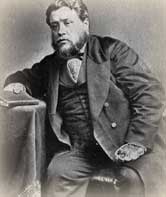Light is sown for the righteous, and gladness for the upright in heart. (Psalm 97:11)
Righteousness is often costly to the man who keeps to it at all hazards, but in the end it will bear its own expenses and return an infinite profit. A holy life is like sowing seed: much is going out, and apparently it is buried in the soil, never to be gathered up again. We are mistaken when we look for an immediate harvest; but the error is very natural, for it seems impossible to bury light. Yet light is "sown," says the text. It lies latent: none can see it; it is sown. We are quite sure that it must one day manifest itself.
Full sure are we that the Lord has set a harvest for the sower of light, and they shall reap it, each man for himself. Then shall come their gladness. Sheaves of joy for seeds of light. Their heart was upright before the Lord, though men gave them no credit for it, but even censured them: they were righteous, though those about them denounced them as censorious. They had to wait, as husbandmen wait for the precious fruits of the earth: but the light was sown for them, and gladness was being prepared on their behalf by the Lord of the harvest.
Courage, brothers! We need not he in a hurry. Let us in patience possess our souls, for soon shall our souls possess light and gladness.






